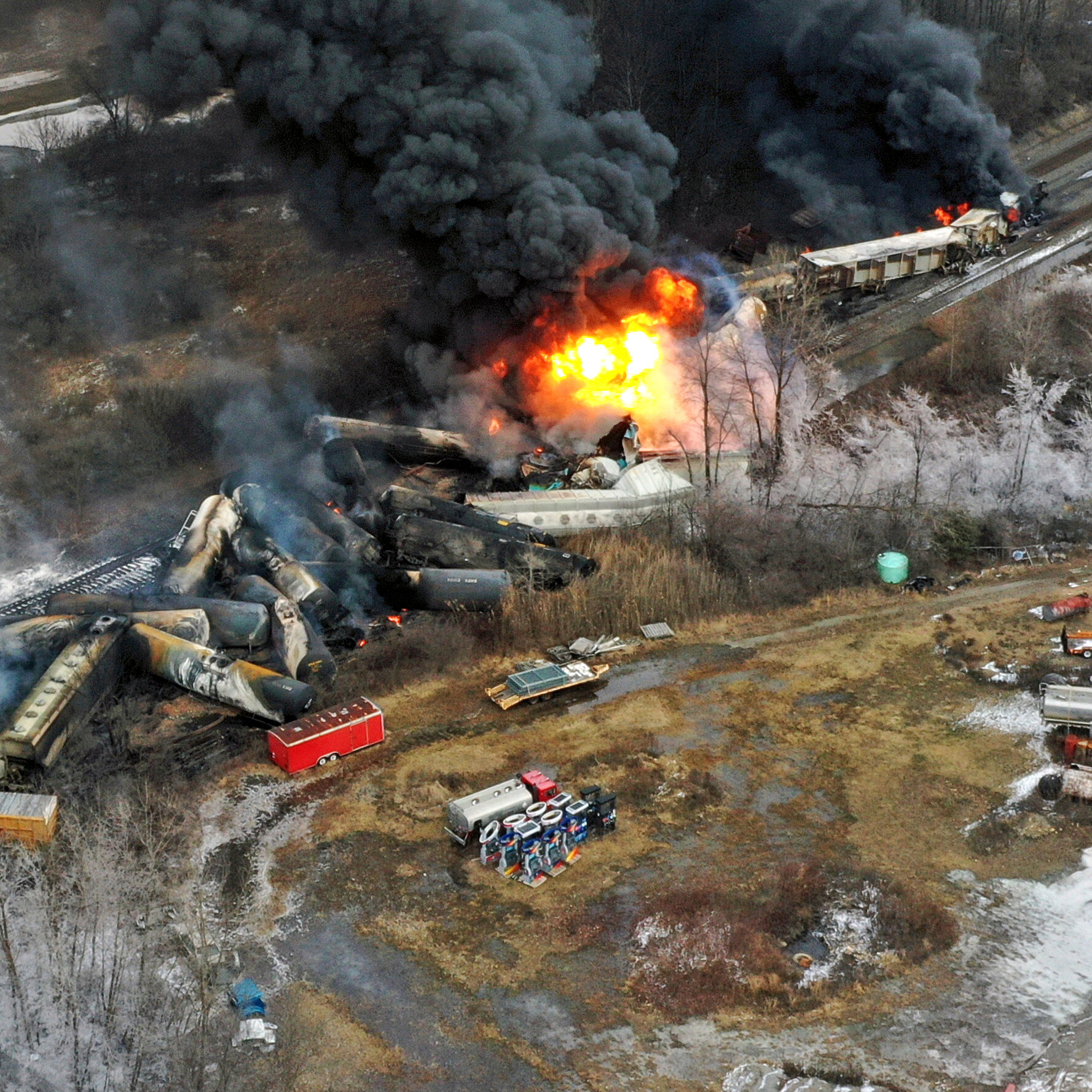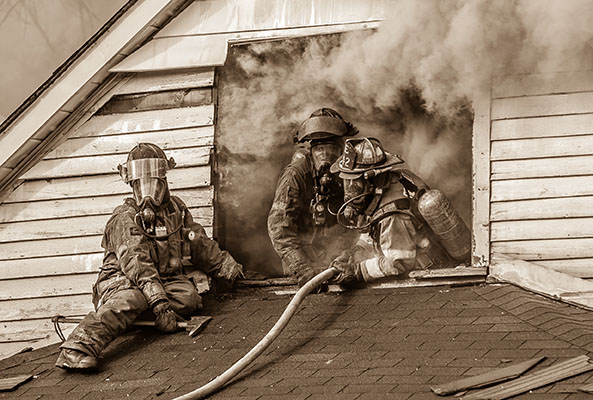Legislation aimed at preventing railway disasters has been introduced in the U.S. Senate with the support of the IAFF. The Railway Safety Act of 2023 includes provisions that will enhance safety procedures for trains carrying hazardous materials and increase the budget for HazMat training grants, including funding for the IAFF’s HazMat Training program.
The legislation is being sponsored by Senators Sherrod Brown (D-OH), J.D. Vance (R-OH), Bob Casey (D-PA), Marco Rubio (R-FL), John Fetterman (D-PA), and Josh Hawley (R-MO).
“Fire fighters are often first to show up at many emergencies, including train derailments and HazMat incidents,” said General President Edward Kelly. “This legislation will help our members get the training they need to effectively respond to HazMat emergencies and keep our members – and the communities they serve – safe.”
The bill comes in response to the Feb. 3 train derailment in East Palestine, Ohio. Eleven tanker cars carrying hazardous materials jumped the tracks and caught fire. The burning cars released phosgene into the atmosphere, which prompted an evacuation of nearby residents. Phosgene is a highly toxic gas that can cause vomiting and trouble breathing.
Additionally, some of the contents of the cars seeped into nearby water sources, killing more than 43,000 animals. Emergency service personnel from Ohio, Pennsylvania, and West Virginia were called to respond and secure the area.
“It shouldn’t take a massive railroad disaster for elected officials to put partisanship aside and work together for the people we serve,” said Brown. “Rail lobbyists have fought for years to protect their profits at the expense of communities like East Palestine. These commonsense safety measures will finally hold big railroad companies accountable, make our railroads and the towns along them safer, and prevent future tragedies.”
The bill includes a proposal to double the amount of money set aside for the Department of Transportation’s Supplemental Public Sector Training grant (which helps fund the IAFF HazMat Training program) from $2 million to $4 million annually.
Other provisions of the bill include new safety requirements and procedures for trains carrying hazardous materials, increased frequency of inspections, and safeguards to prevent wheel-bearing failures.



